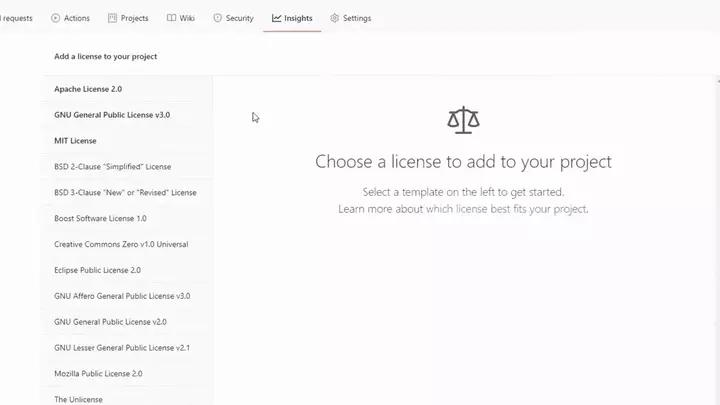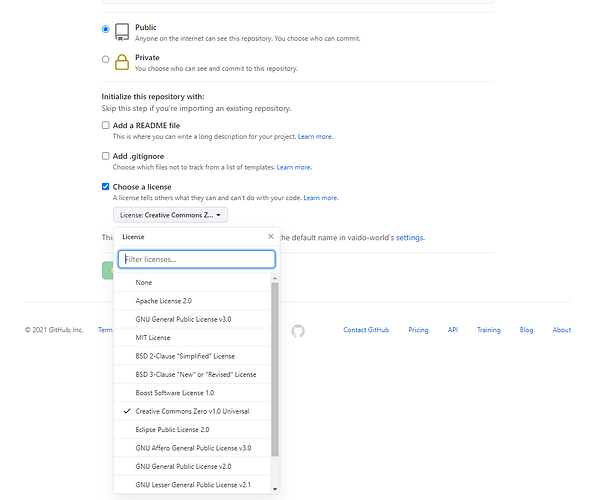I’ve played around in the GitHub, and they do suggest
wholesome amazing licenses do I tell you.
From Apache License 2.0, used by some well known open and free server project Apache HTTP, to MIT suggested by the MIT university itself.
What you would see on a GitHub, is that currently the TOP 3 bolded licenses are
- Apache License 2.0
- GNU General Public License v3.0
- MIT License

Major benefits of these licenses, is that when contributing work, such as patches or merges they are well recognised and are compatible with the current, still flowing -propiertary projects, old ones or new ones.
The disadvantages of using such licenses however seems to be slim, but on a whole - noticible, to the point where other types of licenses were created over last decade or so.
Main disadvantage: these above three licenses are well recognised only in software part, meaning: applicable mostly to code, documentation and various text files.
By witnessing some older game projects such as OpenDiablo2 and OpenMW that try to recover the games for new rounds of entertainment. I started to see a problem on content licensing part, more than the software licensing, since these projects are more affected by distribution of images more than anything else, everything else seems to be rewritten by hand, however the visuals are still to be bought and not shared among these communities, therefore making the distribution and usage of such game projects weird: First you have to download the rewritten open source software from these open projects (OpenMW, OpenDiablo) and then go on and buy the whole game, that contain key files to access the proprietary game visuals and contents, to be able to play these games.
Most projects on GitHub seems to be applicable to confusion when seen with uploaded content, ex. Icons that simply might not considered as a software and, so might be deemed as coerced copyrighted content, if not stated otherwise.
Second disadvantage of using the above licenses, we still allow patent offices to continue to work, keeping the useless workloads and useless jobs in-tact, enslaving some of the most brilliant human beings, only to keep their wages going.
Turned out to be a little bit more than a simple annoyance huh.
Well I might have found some solution to that. As told before there are some more licenses than the ones listed above. However these licenses are relatively new and only one do I consider using for my own project.
Creative Commons CC0 “No Rights Reserved”
Why use all these old nuffy software licenses, that do not care about content.
Creative Commons seems to be pretty well known among artists, photograpers, music producers and that made me happy as a somewhat programmer myself. Finally a license that can unite both artists and programmers into one single project.
Why have multiple licenses, when you can have cc0 for both content and code.
Therefore I chose Creative Commons CC0 over BSD, MIT and Apache or GNU.
To be warned: but if you care about propiertary software and the older people than yourself, that still work in the grungy works, you might stick to the licenses other than Creative Commons CC0.
